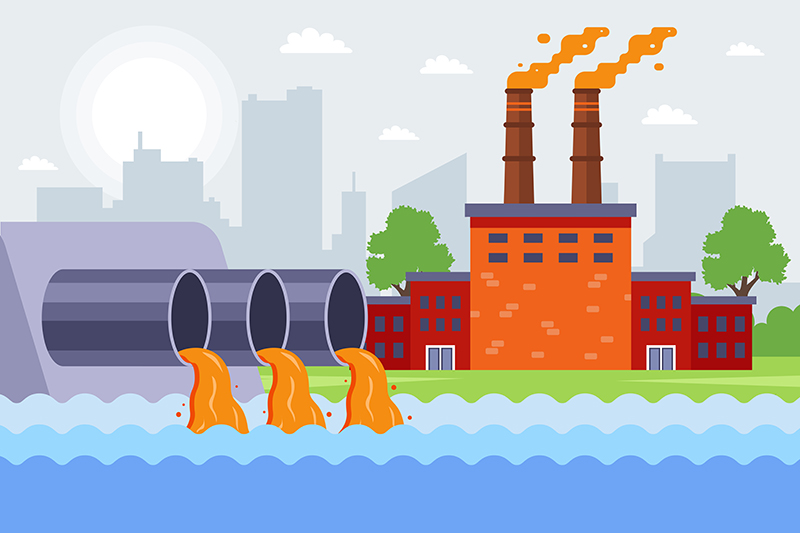scale and corrosion inhibitor chemicals
Scale and Corrosion Inhibitor Chemicals An Overview
In the realm of industrial processes, scale and corrosion pose significant challenges, leading to increased maintenance costs, reduced efficiency, and shorter equipment lifespan. This article delves into the significance of scale and corrosion inhibitor chemicals, exploring their role, mechanisms, and the benefits they bring to various sectors.
Understanding Scale and Corrosion
Scale refers to the accumulation of mineral deposits on surfaces in contact with water, commonly seen in boilers, heat exchangers, and pipelines. As water evaporates or heats up, dissolved minerals precipitate, forming solid deposits that impede the flow of fluids and reduce thermal efficiency. Common minerals involved include calcium, magnesium, and silica.
Corrosion, on the other hand, is the electrochemical deterioration of materials, typically metals, due to their interaction with environmental factors like moisture, oxygen, and chemicals. Corrosion can lead to structural failures, leaking pipes, and hazardous conditions, making its control imperative in industries such as oil and gas, power generation, and water treatment.
The Role of Inhibitors
To mitigate the adverse effects of scale and corrosion, industries employ various chemical inhibitors. These chemicals can be classified into two main categories scale inhibitors and corrosion inhibitors.
Scale Inhibitors These chemicals prevent the formation of scale by altering the crystallization process of minerals in solution. They work by either dispersing crystals or modifying their growth patterns, ensuring that they remain suspended in the water instead of depositing on surfaces. Common scale inhibitors include polyphosphates, phosphonates, and organic polymers. Each of these compounds has unique properties that make them suitable for specific applications.
Corrosion Inhibitors These substances help protect metal surfaces by forming a thin protective film that prevents the corrosive agents from reacting with the metal. Corrosion inhibitors can be categorized into four main types anodic inhibitors, cathodic inhibitors, mixed inhibitors, and volatile inhibitors. Each type operates differently to slow down or halt the corrosion process. For example, anodic inhibitors passivate the metal surface, while cathodic inhibitors function by decreasing the rate of cathodic reactions in the corrosion cell.
Benefits of Using Inhibitors
scale and corrosion inhibitor chemicals

1. Improved Equipment Longevity By effectively managing scale and corrosion, these inhibitors contribute to the extended life of equipment and infrastructure. This not only reduces the need for costly repairs but also minimizes downtime in production.
2. Enhanced Efficiency The presence of scale can significantly decrease the efficiency of thermal systems by impairing heat transfer. By preventing scale formation, inhibitors maintain optimal operational efficiency, leading to energy savings.
3. Environmental Compliance Many industries face stringent environmental regulations regarding their waste and emissions. The appropriate use of scale and corrosion inhibitors can help in achieving compliance by reducing the release of harmful substances into the environment.
4. Cost-Effectiveness While there is an initial cost associated with the use of chemicals, the long-term savings from reduced maintenance costs, extended equipment life, and increased operational efficiency often outweigh these expenses.
Selection and Application of Inhibitors
Selecting the proper scale and corrosion inhibitor requires a thorough understanding of the specific system conditions, including the type of metal, temperature, fluid composition, and flow rates. Moreover, the inhibitors must be applied at the right concentrations and intervals to ensure their effectiveness.
In many cases, a combination of scale and corrosion inhibitors is used to address both issues simultaneously. This holistic approach can lead to optimal performance enhancements and continued operational reliability.
Conclusion
Scale and corrosion are critical threats to industrial systems, but the use of appropriate inhibitor chemicals can significantly mitigate these challenges. With a wide array of inhibitors available, industries can protect their assets, improve efficiency, and comply with environmental regulations. As technology advances, the development of new and more effective inhibitors will continue to play a vital role in safeguarding industrial operations from the detrimental effects of scale and corrosion.
-
LK-319 Special Scale And Corrosion Inhibitor For Steel Plants: Advanced Solutions for Industrial Water SystemsNewsAug.22,2025
-
Flocculant Water Treatment: Essential Chemical Solutions for Purification ProcessesNewsAug.22,2025
-
Isothiazolinones: Versatile Microbial Control Agents for Industrial and Consumer ApplicationsNewsAug.22,2025
-
Scale Inhibitor: Key Solutions for Water System Scale PreventionNewsAug.22,2025
-
Organophosphonates: Versatile Scale Inhibitors for Industrial Water SystemsNewsAug.22,2025
-
Scale and Corrosion Inhibitor: Essential Chemical Solutions for Water System MaintenanceNewsAug.22,2025





